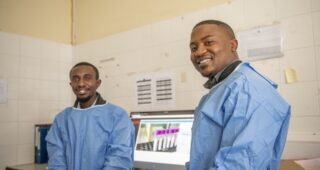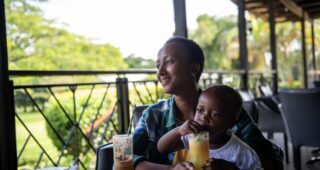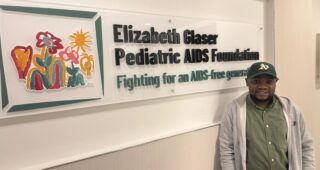Mothers in Tanzania Fight Isolation and HIV Together

When Mariam Hasan was pregnant with her third child in 2013, she discovered that she is living with HIV.
That’s when her husband decided to leave her.
Suddenly a single parent facing a potentially lethal virus, Mariam placed her focus where any mother would — on her unborn child. Fortunately, health workers at the Ufukoni Health Centre in Mtwara, Tanzania, immediately enrolled Mariam in an antiretroviral program to prevent transmission of HIV to her child. This regimen is extremely effective, and in due time, Mariam gave birth to an HIV-free baby girl.
“Thanks to God, I was made aware of my HIV status before it was too late,” says Mariam.
When Mariam tested positive for HIV, the health workers encouraged Mariam to begin attending a fledgling mothers support group. Mariam joined seven other HIV-positive women who were either pregnant or had just had babies. Together they formed a network of care — educating and supporting each other about prevention of mother-to-child transmission (PMTCT) of HIV, family planning, drug adherence, and feeding methods. Due to her active participation and keen interest in learning about HIV, Mariam was selected as the chairperson.
Mothers support groups provide a crucial link in care and treatment for HIV because they facilitate the natural connections that exist among mothers. The groups facilitate counseling, improve retention on treatment, and provide psychosocial support to HIV-positive pregnant and breastfeeding mothers until their children reach the age of 2. Started in December 2013, the Ufukoni mothers support group had doubled to 16 members by June 2014.
Mariam says that without the support of her “sisters,” she is not sure how she would have coped with her challenges as a single mother living with HIV.
“I am very grateful; the group has encouraged and provided me with hope to live,” says Mariam.
Although mother-to-child transmission of HIV has been virtually eliminated in the United States, in resource-limited regions of the world, babies remain at risk. Globally, nearly seven hundred babies become infected with the virus each day. Yet mothers like Mariam who enroll in PMTCT treatment can expect to raise children who are HIV-free. And if the mothers adhere to antiretroviral therapy, they can maintain their health and live to see their children grow into adulthood.
Isolation can be an enemy to women living with HIV. Mothers support groups provide much-needed solidarity.
EGPAF began supporting efforts to prevent, care for, and treat pediatric HIV and AIDS in Tanzania in 2003. Working with the Tanzania Ministry of Health and Social Welfare (MOHSW), EGPAF is implementing critical initiatives to eliminate HIV infections in children and support HIV-positive children, mothers, and families.
EGPAF
General



